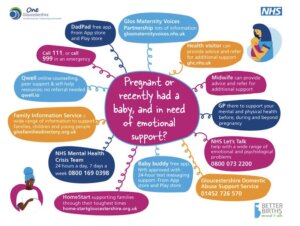Baby blues or something more?
We often here the term “baby blues”. What are they? And how do we know if it’s baby blues or something more? This post is written by Psychotherapist and mother, Jerilee Claydon.
I have been mulling over how to tackle the topic of postnatal depression for weeks. What seemed a straight forward request has raised my awareness to the fact that we seem to know what post natal depression is, but do we really understand it?
What IS postnatal depression?
I think its fair to say every mother feels low at some point post birth. A minor injury of a stubbed toe prompts woes of discomfort. So surrendering your body to pregnancy to then have a tiny human removed vaginally or surgically, is going to have an impact both physically and emotionally.
To begin I think its useful to give a formal definition for postnatal depression:
Depression suffered by a mother following childbirth, typically arising from the combination of hormonal changes, psychological adjustment to motherhood and fatigue.
What are “Baby Blues”?
So what are the baby blues? Do they differ? The Baby Blues tend to start day three post birth with the sudden change in hormones making you feel teary and overwhelmed. It tends to peak at week one with feelings of weariness, fatigue, anxiety and isolation. Then as the hormones settle by week three, the high emotions begin to taper and should subside. Does this mean those first few weeks of Baby Blues do not require emotional attention? The baby blues look less blue and more grey to me, a limbo land; not being ok but not being classified as depressed.
Does any parent really know what’s going on? You have a new house guest, who isn’t leaving anytime soon. You are on a crash course of getting to know each other combined with a rush of hormones, depleted vitamin and mineral reserves and little sleep.
What does the research say?
Research shows a lack of sleep can create clinical depression in the healthiest of people. During a study it was discovered that healthy adults when woken continually over a period of a month, without the demands of a baby or birth, were almost all diagnosed with clinical depression. Without pregnancy or a baby?! So who is responsible for the first few weeks being deemed ‘blue’? Somewhere around the 1940’s the experiences post birth were coined as baby blues. In his best-selling baby book Expectant Motherhood, 1940, Nicholson J. Eastman wrote:
“Most common among such reactions, perhaps, is what is colloquially called the ‘Baby Blues’.”
Does this term now undermine the experience? Thankfully we’ve outgrown Eastman’s other advice on how to reduce baby blues. He helpfully advised women to limit themselves to 10 cigarette daily during pregnancy. Jeez!
If the term Baby Blues can no longer suffice maybe Dr Oscar Serrallach a family practitioner in Australia has the answer. Dr Serrallach using modern methods identifies the demands on the body describing the process as postnatal depletion, which can develop into more severe forms of depression. To briefly summarise his work, he recognises the scientific demands to grow a baby highlighting the nutritional demands and consequences. He takes into consideration the reprogramming of the mothers brain for parenthood which shrinks by 5% to pass the enormous amounts of fats required to the baby; 7 grams of fat from the placenta travels to the baby daily, Mums zinc, iron, Vitamin B12 Vitamin B9, Iodine, omega 3 fats, and selenium stores are all tapped into (low selenium is linked to depression). Dr Oscar describes further demands beyond pregnancy each impacting how they will emotionally take a toll on the mother.
Perhaps this scientific approach educates society to accept EVERY woman will feel quite literally depleted after her birth. Perhaps through a universal responsibility to meet every mother’s needs she is free to meet the needs of her baby. Mothers are also then on the radar should moods escalate and need further attention.
OK so what can you do to help yourself?
Because of course the experience of birth is not just the sorry state of affairs I have sold it as in the 600ish words above. What can we do as an expectant parent to maximise the joy it also brings?
- Getting your support system in place is the first vital step! Know who you are going to utilise and make them aware
- Learn key tools prior to the birth
- Develop skills in how to protect your relationship
- Learn to identify the six states of a baby
- Explore the kind of parent you’ll be
If you have concerns about your mental health after having a baby (or in pregnancy) you should contact your midwife, health visitor or GP. It always helps to speak to someone, and you are never alone.
The Baby Chapter contains an entire section on Looking after your Mental health, with Dr Justine.
